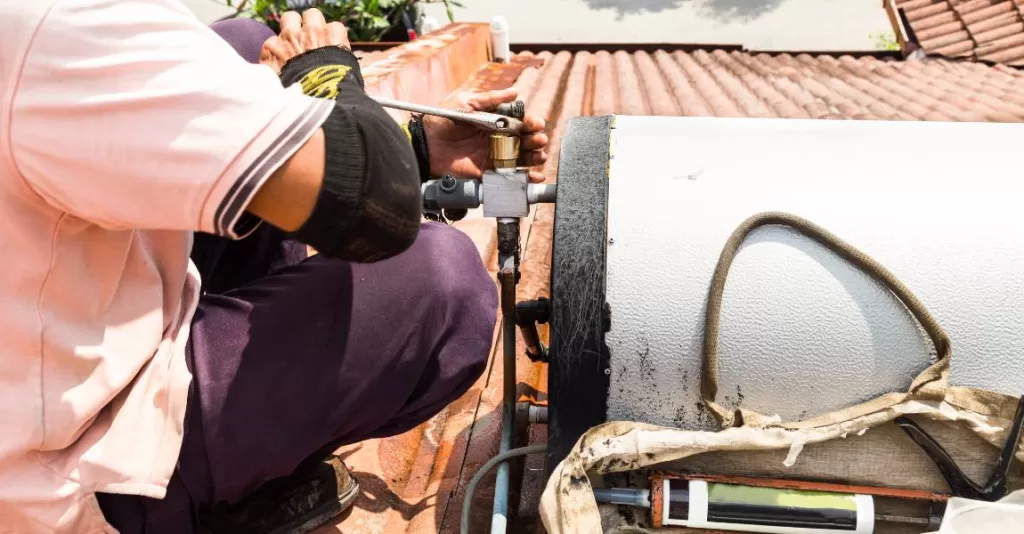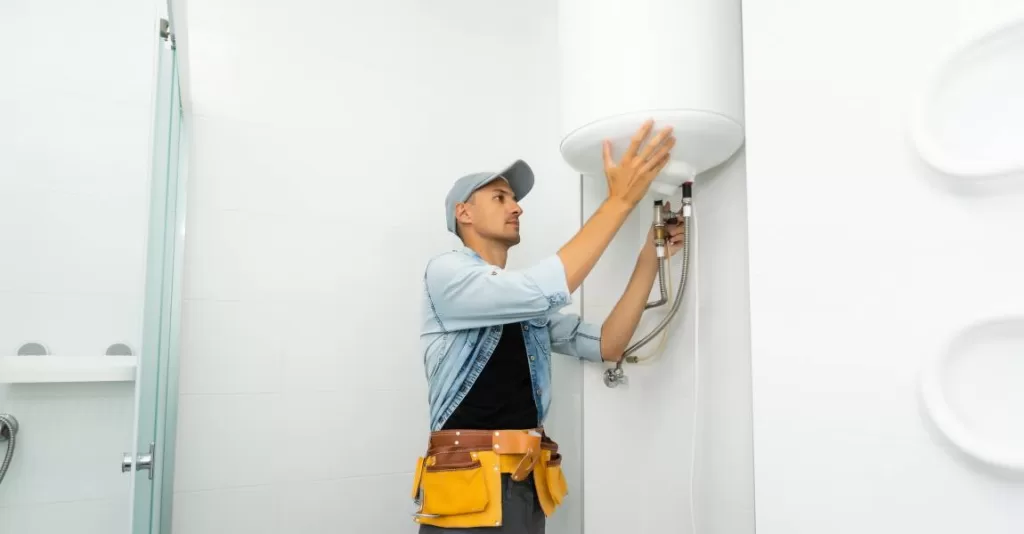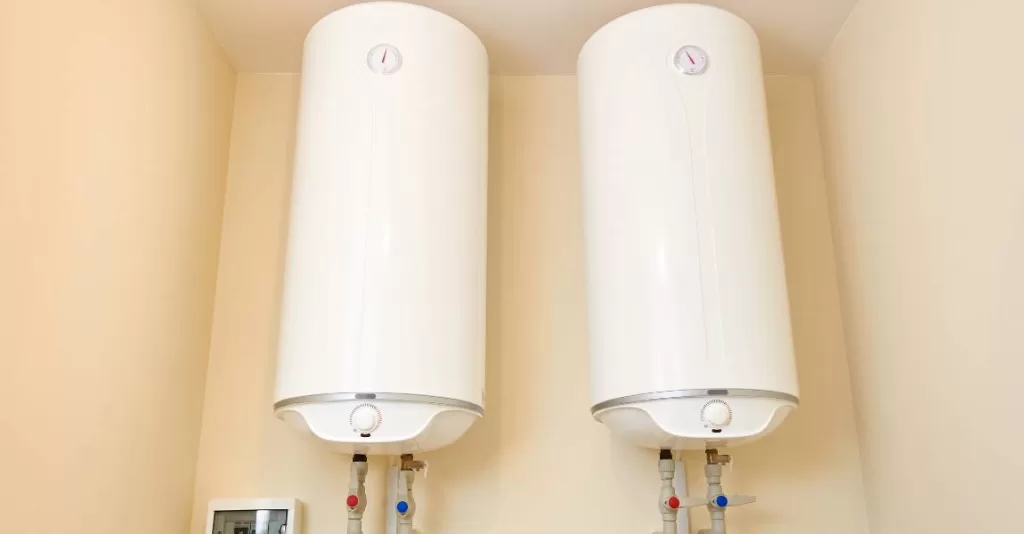Why is Regular Water Heater Maintenance Important?
Regular water heater maintenance is important to ensure your water heater operates efficiently and effectively. Neglecting maintenance can result in higher utility bills, reduced hot water supply, and even potential damage to your home.
By regularly maintaining your hot water heater, you can extend its lifespan, prevent costly repairs, and ensure your household has a reliable source of hot water. In this article, we will explore the reasons why regular water heater maintenance is important and provide tips on how to properly maintain your water heater. Keep reading to learn more about Why Regular Water Heater Maintenance is Important?

Table of Contents
Water heaters often lurk quietly in basements or utility closets in our homes, faithfully providing hot water for showers, laundry, and dishes. Yet, it’s easy to overlook the importance of regular maintenance for these essential appliances.
Neglecting water heater maintenance can lead to costly repairs and reduced efficiency, and even The safety of your heater should be a primary concern, requiring routine maintenance to prevent accidents. hazards.
In this comprehensive guide, we’ll delve into why regular maintenance is paramount for maintenance of your water heaters, be it gas water heater or electric water heater, which is essential for optimal performance, ensuring they operate efficiently and reliably for years to come.
Understanding the Importance of Regular Maintenance
Maintenance is essential for keeping any system or appliance in good working condition. By performing preventative maintenance, you can prevent issues before they become major problems, extend the lifespan of your equipment, and ensure that everything is working efficiently.
For example, car maintenance can help prevent breakdowns and costly repairs, improve fuel efficiency and overall performance, and ensure that your home stays comfortable year-round. Similarly, HVAC system maintenance can help prevent costly repairs, improve energy efficiency, and ensure that your home stays comfortable year-round.
By investing in annual maintenance, you can save time and money in the long run by avoiding major repairs or replacements. It also gives you peace of mind knowing that your equipment is being properly cared for and maintained. Maintenance is a crucial part of responsible ownership and can help you get the most out of your investments in the long run.
Enhancing Efficiency
How do efficient water heaters Work? Water heaters work tirelessly to heat and deliver hot water on demand. Over time, mineral deposits can accumulate within the tank, creating a layer of sediment at the bottom. This sediment reduces the heater’s efficiency by insulating the heating element from the water and increases energy consumption as the heater works harder to overcome this barrier.
Preventative water heater maintenance, including flushing the tank to remove sediment buildup, helps restore efficiency and lower energy bills.
According to the Environmental Protection Agency (EPA), regularly maintaining a water heater can improve its efficiency by up to 20%, resulting in substantial energy savings and reduced carbon emissions over the appliance’s lifetime.
Extending Life of Your Water Heater
Another reason Why Regular Water Heater Maintenance is Important. Like any mechanical device, water heaters experience wear and tear with regular use. Without proper maintenance components such as the heating element, thermostat, and pressure relief valve are susceptible to corrosion, rust, and other forms of deterioration.
By conducting routine inspections and addressing minor issues promptly, homeowners can ensure their hot water needs are met efficiently. Extend the lifespan of your water heater through regular maintenance. Avoiding premature failure and the need for costly replacements.
Preventing Costly Repairs
A small leak or a strange rumbling noise may seem insignificant initially, but ignoring these warning signs can lead to major malfunctions. For instance, a leaky pressure relief valve can cause excessive pressure buildup within the tank, resulting in catastrophic failure or even explosion.
By scheduling regular maintenance checks, certified technicians can identify and rectify potential problems before they escalate, saving homeowners from expensive repairs and water damage.
Ensuring Safety
Safety should always be a top priority for home appliances, especially those that involve heating water to high temperatures. This is why regular water heater maintenance is Important. Faulty wiring, gas leaks, or malfunctioning pressure valves pose serious safety hazards, including fire, carbon monoxide poisoning, and scalding injuries.
Regular maintenance not only ensures that safety mechanisms are functioning properly but also provides peace of mind for homeowners and their families.

The National Association of Home Builders states that up to 75% of water heater failures are due to a lack of maintenance, underscoring the critical role of regular upkeep in preventing costly breakdowns and repairs.
The Maintenance Checklist for Regular Water Heaters
Now that we understand why regular water heater maintenance is essential, let’s outline a comprehensive maintenance checklist to keep your plumbing in top condition:
Maintenance Tips Checklist:
1. Flushing the Tank to Remove Buildup
Regularly flushing the tank to remove sediment buildup helps maintain optimal efficiency and prolongs the water heater’s lifespan. This should be done annually or as the manufacturer recommends to ensure the maintenance of your water heater is up to date.
Studies show that water heaters that receive regular maintenance have a 50% longer lifespan compared to those that are neglected, emphasizing the significant impact of maintenance on the longevity of these appliances.
2. Inspecting Anode Rod
The sacrificial anode rod plays a crucial role in preventing corrosion within the tank by attracting corrosive elements. Inspecting and replacing the anode rod when necessary can prevent premature tank failure.
3. Checking Pressure Relief Valve
The pressure relief valve is designed to release excess pressure to prevent the tank from exploding. Testing the valve periodically on your water heater ensures it functions correctly and provides peace of mind, preventing the need for urgent water heater repairs.
4. Insulating Pipes
Insulating hot water pipes reduces heat loss and energy consumption, especially in cold climates. Adding pipe insulation to your water heater is a simple yet effective way to improve the efficiency of your water heating system and ensure you get hot water when you need it.
5. Adjusting Temperature Settings
Lowering the temperature setting on your water heater reduces energy consumption and prevents scalding injuries, especially in households with young children or elderly individuals.
6. Inspecting for Leaks
Regular inspection of the tank, connections, and valves can prevent water damage and save you money on repairs. Addressing leaks promptly in your water heater can also save you time, money, and headaches in the long run, highlighting the benefits of water heater maintenance.
7. Professional Regular Water Heater Maintenance
While homeowners can perform some maintenance tasks, it’s essential to schedule professional maintenance annually. Certified technicians have the expertise and tools to conduct a thorough inspection and address any issues that may arise.
8. Monitoring Water Quality
Monitoring the quality of the water entering your heater, especially for hard water, can help identify potential issues such as mineral buildup or sedimentation. Consider installing a water softener or filtration system to improve water quality and protect your system.
9. Checking for Corrosion
Inspecting the tank and components for signs of corrosion or rust is crucial for preventing leaks and premature failure. If you notice any corrosion, addressing the issue promptly is essential to avoid costly repairs or replacements.
10. Keeping the Area Clear
Ensure that the area around your heater is clear of clutter and debris to allow for proper ventilation and access for maintenance. Avoid storing flammable materials or chemicals near the heater to reduce the risk of fire hazards.
Incorporating these routine maintenance tasks ensures that it will operate efficiently, reliably, and safely for years. Remember, investing in regular maintenance now can save you time, money, and headaches in the future.

What are the Different Types of Water Heaters?
Tankless water heaters are becoming increasingly popular due to their energy efficiency and space-saving design. Unlike traditional water heater tanks, tankless models heat water on demand, providing consistent water temperature and pressure. They are also easier to maintain than traditional models. Contact us for professional assistance if you need help selecting or installing a tankless heater.
Gas and electric are common options for homes. Gas heaters are typically more energy efficient, while electric ones are easier to maintain your water heater. Both types can be found in tank water and tankless variations, providing different options depending on your household’s needs.
When selecting one, consider your household’s water temperature and water pressure needs. A boiler may be necessary for larger homes with high hot water demand. Regardless of the type you choose, ensuring proper installation and regular maintenance can help avoid issues and ensure efficient operation.
FAQs:
How Often Should I Flush My Water Heater?
It’s recommended to flush your water heater at least once a year to remove sediment buildup and maintain optimal efficiency.
Why is the Pressure Relief Valve Important?
The pressure relief valve prevents excessive pressure buildup within the tank, reducing the risk of explosion and ensuring safety.
Can I Perform Maintenance Myself?
While homeowners can perform some maintenance tasks, scheduling professional maintenance annually is essential to ensure thorough inspection and maintenance.
How Do I Know If I Need Water Heater Maintenance?
Signs that you may need maintenance include reduced hot water supply, strange noises, leaks, or increased energy bills. It’s essential to address these issues promptly to prevent further damage.
What Should I Do If I Detect a Leak?
If you detect a leak, shut off the power or gas supply to the heater and the water supply to prevent further damage. Then, contact a professional plumber to assess and repair.
Is it Worth Investing in Regular Maintenance for Older Units?
Regardless of age, regular maintenance is essential. Even older units can benefit from maintenance to improve efficiency, prevent leaks, and ensure safety.
Conclusion
In conclusion, regular maintenance is paramount for ensuring the efficiency, reliability, and safety of water heaters. By following a comprehensive maintenance checklist and scheduling professional inspections, homeowners can avoid costly repairs, extend the lifespan of their water heaters, and enjoy peace of mind knowing that their hot water supply is in good hands.
If you need preventative maintenance services, please contact JD’s Plumbing, Heating and Air Conditioning. Our team of skilled technicians is ready to assist you with all of your maintenance needs.
Let us help you keep your equipment running smoothly and efficiently. Contact us today to schedule your maintenance services.





